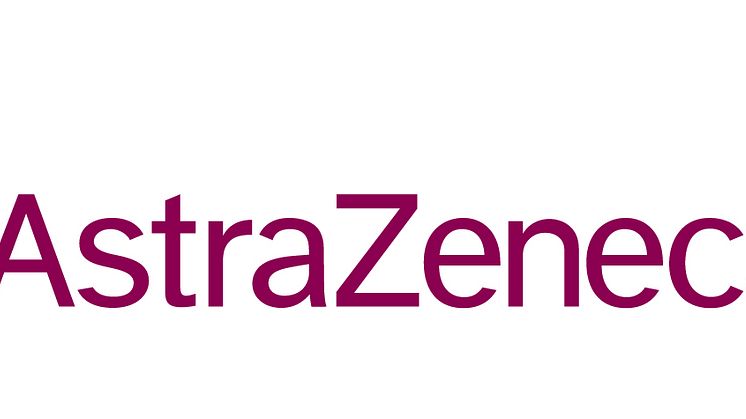
Pressmeddelande -
Risk of repeat heart attack twice as likely from occlusions in arteries that did not cause initial event
100,000+ patient real-world study reinforces need for ongoing protective therapy after heart attack
AstraZeneca announced today the publication of a new analysis from an ongoing real-world quality registry that suggests the risk of experiencing a repeat heart attack (also known as a myocardial infarction or MI) from occlusions in non-stentedarteries is twice as high as the risk stemming from the initially stented artery following a first heart attack.
The results of PRECLUDE, an analysis of data from the ongoing SWEDEHEART quality registry, show that in people whose coronary artery disease (CAD) affects more than one major blood vessel, the risk of a further heart attack remains from occluded arteries that were not stented at the time of their first heart attack.[1] Published in the Journal of the American Heart Association,1these insights may impact future decisions on the type and duration of medical treatment following an initial heart attack.
Dr Stefan James, Uppsala University Hospital and Uppsala Clinical Research Center, and study author, said: “We know that a substantial proportion of patients who undergo a successful PCI [percutaneous coronary intervention] following a heart attack go on to experience further events. The PRECLUDE analysis is significant because it makes clear that this risk is also driven by existing occlusions left untreated with PCI and stenting. The results reinforce that stenting alone is not enough and that effective secondary prevention medication is needed to reduce this real risk of repeat heart attacks.”
An estimated seven million people worldwide experience a potentially fatal heart attack every year, while more than 110 million live with CAD.[2] Heart attacks are the most common cause of heart failure (HF) worldwide[3] and can lead to angina,[4]irregular heartbeat[5] and depression,[6] among other conditions.
PRECLUDE is a real-world observational cohort study in 108,615 patients who had experienced a first MI and were enrolled in the SWEDEHEART (Swedish Web-system for Enhancement and Development of Evidence-based Care in Heart Disease Evaluated According to Recommended Therapies) quality registry between 2006 and 2014.1The researchers followed patients in the registry who had undergone PCI for occluded arteries linked to their heart attack – known as culprit lesions – and checked if subsequent heart attacks were caused either by these culprit lesions or by previously unstented occlusions – non-culprit lesions.
Of the patients who underwent PCI, culprit lesions for the index heart attack were identified in 44,332 cases: 3,464 (8%) had another heart attack of which 1,243 (36%) originated from a non-culprit lesion and 655 (19%) from the culprit lesion at some point during follow-up (median of just over three years).1
PRECLUDE’s analysis offers a better understanding of long-term disease progression in CAD, the risks for heart attack survivors, and whether subsequent heart attacks occur in stented arteries or in new or progressive occlusions.1
The lead researchers for PRECLUDE were based at Uppsala Clinical Research Center, Uppsala, Sweden with support of other Swedish academics and clinicians and supported by AstraZeneca.
– ENDS –
NOTES TO EDITORS
About PRECLUDE
PRECLUDE (Pattern of Repeat Cardiovascular Events During Follow-up After First Diagnosed Event-MI) was a observational cohort study that combined the SWEDEHEART registries RIKS-HIA (Registry of Information and Knowledge about Swedish Heart Intensive care Admissions), SCAAR (Swedish Coronary Angiography and Angioplasty Registry) and SEPHIA (the registry for secondary prevention following coronary intensive care); and the Swedish National Population Registry (to obtain data regarding vital status and date of death), Swedish Cause of Death Register (to separate fatal from non-fatal MI), the Swedish Patient Registry (to obtain data on prior medical history) and the Swedish Drug Registry (to obtain prescribed medical treatment and filled prescriptions).
The RIKS-HIA database covers all acute coronary syndrome (ACS) patients treated at heart intensive care units in Sweden and SCAAR entails all PCI procedures performed across all centres in Sweden.
The study included patients with first time ever ACS events and received care at cardiac intensive care units and entered in the SWEDEHEART quality registry between 1 July 2006 and 31 December 2014. Baseline and in-hospital characteristics were noted, including peri-procedural anti-thrombotic treatments.
About AstraZeneca
AstraZeneca is a global, science-led biopharmaceutical company that focuses on the discovery, development and commercialisation of prescription medicines, primarily for the treatment of diseases in three therapy areas - Oncology, Cardiovascular & Metabolic Diseases and Respiratory. The Company also is selectively active in the areas of autoimmunity, neuroscience and infection. AstraZeneca operates in over 100 countries and its innovative medicines are used by millions of patients worldwide.
For more information, please visit www.astrazeneca.com and follow us on Twitter @AstraZeneca.
Media contact: Petra Eurenius, External Communications Director, AstraZeneca Nordic-Baltic, 0709 186562
References
[1]Varenhorst C, Hasvold P, Johansson S et al. Culprit and nonculprit recurrent ischemic events in patients with myocardial infarction: Data from SWEDEHEART (Swedish Web System for Enhancement and Development of Evidence‐Based Care in Heart Disease Evaluated According to Recommended Therapies). J Am Heart Assoc. 2018;7:e007174.
[2] Roth GA, Johnson C, Abajobir A, et al. Global, Regional, and National Burden of Cardiovascular Diseases for 10 Causes, 1990 to 2015. J Am Coll Cardiol. 2017;70:1-25.
[3] Cahill TJ, Kharbanda RK. Heart failure after myocardial infarction in the era of primary percutaneous coronary intervention: Mechanisms, incidence and identification of patients at risk. World J Cardiol. 2017;9(5):407-415.
[4] Grodzinsky A, Arnold SV, Gosch K, et al. Angina frequency after acute myocardial infarction in patients without obstructive coronary artery disease.Eur Heart J Qual Care Clin Outcomes. 2015;1:92-99.
[5] Perron AD, Sweeney T. Arrhythmic complications of acute coronary syndromes. Emerg Med Clin North Am. 2005;23:1065-82.
[6] Larsen KK, Christensen B, Søndergaard J, et al. Depressive symptoms and risk of new cardiovascular events or death in patients with myocardial infarction: a population-based longitudinal study examining health behaviors and health care interventions. PLoS One. 2013;8:e74393.
Ämnen
Kategorier
Om AstraZeneca
AstraZeneca är ett globalt, innovationsdrivet bioläkemedelsföretag med fokus på forskning, utveckling och marknadsföring av receptbelagda läkemedel, primärt för behandling av sjukdomar inom tre terapiområden - andningsvägar, hjärta/kärl/metabolism och cancer men är också selektivt aktiv inom områdena autoimmunitet, neurovetenskap och infektion. AstraZeneca är verksamt i över 100 länder och våra innovativa läkemedel används av miljontals patienter världen över. Mer information finns på: www.astrazeneca.com och www.astrazeneca.se


